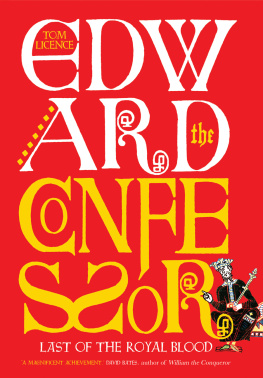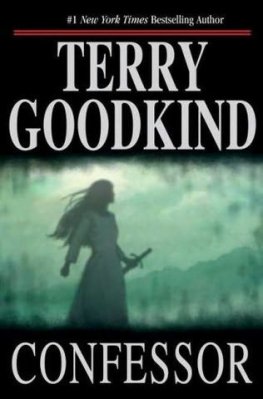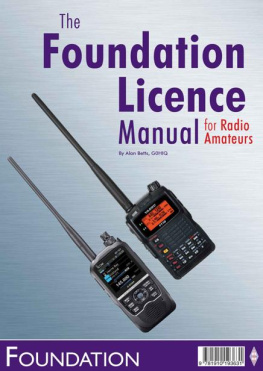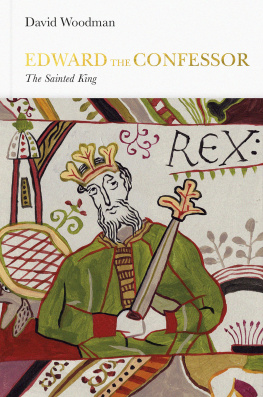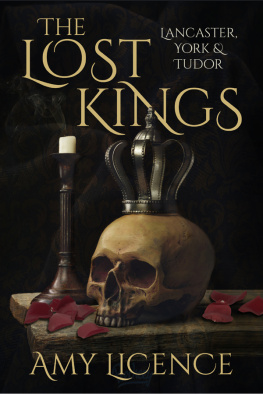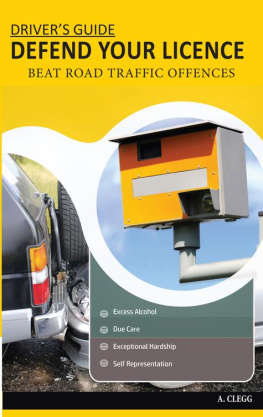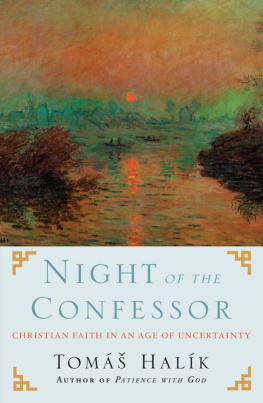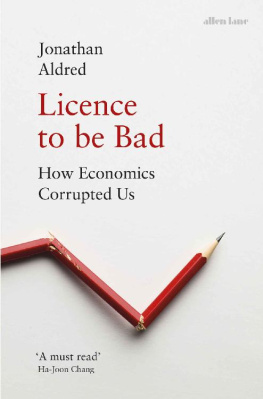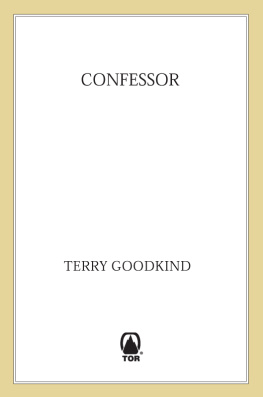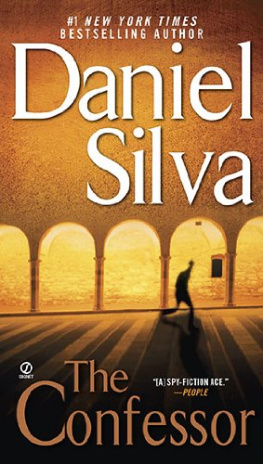Tom Licence - Edward the Confessor
Here you can read online Tom Licence - Edward the Confessor full text of the book (entire story) in english for free. Download pdf and epub, get meaning, cover and reviews about this ebook. publisher: Yale University Press, genre: Religion. Description of the work, (preface) as well as reviews are available. Best literature library LitArk.com created for fans of good reading and offers a wide selection of genres:
Romance novel
Science fiction
Adventure
Detective
Science
History
Home and family
Prose
Art
Politics
Computer
Non-fiction
Religion
Business
Children
Humor
Choose a favorite category and find really read worthwhile books. Enjoy immersion in the world of imagination, feel the emotions of the characters or learn something new for yourself, make an fascinating discovery.
- Book:Edward the Confessor
- Author:
- Publisher:Yale University Press
- Genre:
- Rating:5 / 5
- Favourites:Add to favourites
- Your mark:
- 100
- 1
- 2
- 3
- 4
- 5
Edward the Confessor: summary, description and annotation
We offer to read an annotation, description, summary or preface (depends on what the author of the book "Edward the Confessor" wrote himself). If you haven't found the necessary information about the book — write in the comments, we will try to find it.
Edward the Confessor — read online for free the complete book (whole text) full work
Below is the text of the book, divided by pages. System saving the place of the last page read, allows you to conveniently read the book "Edward the Confessor" online for free, without having to search again every time where you left off. Put a bookmark, and you can go to the page where you finished reading at any time.
Font size:
Interval:
Bookmark:
EDWARD THE CONFESSOR
The Yale English Monarchs Series
THELSTAN by Sarah Foot
CNUT THE GREAT by Timothy Bolton
EDWARD THE CONFESSOR by Frank Barlow
EDWARD THE CONFESSOR by Tom Licence
WILLIAM THE CONQUEROR by David Bates
WILLIAM RUFUS by Frank Barlow
HENRY I by Warren Hollister
KING STEPHEN by Edmund King
HENRY II by W. L. Warren*
RICHARD I by John Gillingham
KING JOHN by W. L. Warren*
HENRY III (2 vols) by David Carpenter
EDWARD I by Michael Prestwich
EDWARD II by Seymour Phillips
EDWARD III by W. Mark Ormrod
RICHARD II by Nigel Saul
HENRY IV by Chris Given-Wilson
HENRY V by Christopher Allmand
HENRY VI by Bertram Wolffe
EDWARD IV by Charles Ross
RICHARD III by Charles Ross
HENRY VII by S. B. Chrimes
HENRY VIII by J. J. Scarisbrick
EDWARD VI by Jennifer Loach
MARY I by John Edwards
JAMES II by John Miller
QUEEN ANNE by Edward Gregg
GEORGE I by Ragnhild Hatton
GEORGE II by Andrew C. Thompson
GEORGE III by Jeremy Black
GEORGE IV by E. A. Smith
* Available in the U.S. from University of California Press

Copyright 2020 Tom Licence
All rights reserved. This book may not be reproduced in whole or in part, in any form (beyond that copying permitted by Sections 107 and 108 of the U.S. Copyright Law and except by reviewers for the public press) without written permission from the publishers.
For information about this and other Yale University Press publications, please contact:
U.S. Office:
Europe Office:
Set in Baskerville by IDSUK (DataConnection) Ltd
Printed in Great Britain by TJ International Ltd, Padstow, Cornwall
Library of Congress Control Number: 2020938190
ISBN 978-0-300-21154-2
A catalogue record for this book is available from the British Library.
10 9 8 7 6 5 4 3 2 1
For Ben
CONTENTS
PLATES
(accessed 17 March 2020).



PREFACE
On Saturday 14 October 2017, on the grassy slopes beneath Battle abbey, I sat with one of my students, red and white flag in one hand, pint of cider in the other, as a host of Norman cavalry charged the English on the hill. No one dared believe history would be re-written that day, but most of us cheered Harold and booed the Norman duke, while a few waved flags for the latter, happy with the tide of events. Prior to the action, Harold and William had each put his case to the crowd. Edward the Confessor had croaked out his last words in a fit of hammy wheezing. Once more the stage was set for the re-enactment of the drama a drama inviting us to choose sides in a battle for English identity. It is a drama that reverberates to this day.
I was less familiar with Edward the Confessor in 2005 when I heard a recreation of music from his reign being performed in Westminster abbey. Music transports us back into the past. It frees a spirit long contained, like incense from a tomb. Arriving at the University of East Anglia in 2009, I started teaching the special subject on the Norman Conquest. Plans for a new Yale biography of Edward were hatched in the summer of 2013; and I began early drafts two years later during a period of study leave in Berlin. Another spell of leave in 2018 allowed me to prepare a final draft, but the rewriting and polishing ran into 2020.
Edward has not been attractive to historian-biographers. E. A. Freeman admired him as a saint but rejected him as a king. Frank Barlow, who wrote the previous biography of the Confessor in this series, in 1970, hardly warmed to him, though he did deem him competent. My sense was that the man and the reign were poorly understood; that over the years Edward had acquired too much baggage and become so entangled with an emotive national story about the downfall of Anglo-Saxon England that it was difficult for historians to approach him with an open mind.
In the fifty years since Barlows Edward took shape, scholars studying the Conquest era have made many important discoveries and filled a few holes. They have come at tough problems from new angles and chipped away old defences. I am greatly indebted to the late Frank Barlow, whose interests foreshadowed my own, and to the work of others, particularly David Bates, Pierre Bauduin, Stephen Baxter, Katherine Keats-Rohan, Simon Keynes, Levi Roach, Pauline Stafford, Liesbeth van Houts, and Ann Williams. They and many others have been putting together sections of the jigsaw, enabling me better to see and imagine a credible configuration.
Sarah Foot and Judith Green assisted at an early stage by sharing their experience on writing biography. Katherine Keats-Rohan has been attentive on Brittany and on the Bayeux Tapestry. Stephen Baxter has kindly shared his thoughts on the chroniclers, Domesday Book and the earls. Charles Insley, Chris Lewis, Simon Keynes, Richard Sharpe?, Nicholas Vincent and David Woodman have assisted with charters, and Susan Kelly refined my arguments for Appendix 2 (where any errors are mine). Rory Naismith, Hugh Pagan, Jo Porter and Gareth Williams addressed numismatic enquiries, and Jo and Rebecca Pinner supplied photos of the face I forgot to photograph in Copenhagen. Rosalind Love and Elizabeth Tyler have, for the past ten years, shared their thoughts on the Vita dwardi regis (The Life of King Edward). Levi Roach and Katy Cubitt have endured interrogations on the character of Edwards father, and I thank for their help Mark Bailey, Wendy Davies, Hugh Doherty, Veronique Gazeau, Robert Liddiard, Ben Pohl, Ben Savill, Francesca Tinti, Emily Ward, and Emily Winkler.
The lead acknowledgements remain. First, I am most grateful to Robert Baldock for commissioning the biography, and to Heather McCallum and her team for seeing it through to the shelf. Im also grateful to the few who have given me more scholarly assistance than anyone else. They are David Bates, who encouraged me to take on Edward; Simon Keynes, Liesbeth van Houts, and my PhD student Liam Draycott. Mistakes and oversights are mine. The five people who read drafts and helped improve the book were my husband, Ben Ross, David Bates, Stephen Church, Liesbeth van Houts, and Ann Williams, and it was Ben who got me thinking about character and plot and how to craft a good story. Like the re-enactors, I could not rewrite the ending, but I have at least shifted the light so that its shadow falls elsewhere.
ABBREVIATIONS
AB | Analecta Bollandiana |
Acta SS. | Acta Sanctorum, ed. J. Bolland et al., 67 vols (Antwerp and Brussels, 1643) |
lfric, CH: FS | lfric, Catholic Homilies: The First Series, ed. P. Clemoes, EETS s.s. 17 (Oxford, 1997) |
ANS | Anglo-Norman Studies: Proceedings of the Battle Conference |
ASC | Anglo-Saxon Chronicle, cited by manuscript and year (corrected in square brackets if necessary); unless otherwise stated, from the following editions: The Anglo-Saxon Chronicle, a Collaborative Edition |
Font size:
Interval:
Bookmark:
Similar books «Edward the Confessor»
Look at similar books to Edward the Confessor. We have selected literature similar in name and meaning in the hope of providing readers with more options to find new, interesting, not yet read works.
Discussion, reviews of the book Edward the Confessor and just readers' own opinions. Leave your comments, write what you think about the work, its meaning or the main characters. Specify what exactly you liked and what you didn't like, and why you think so.

